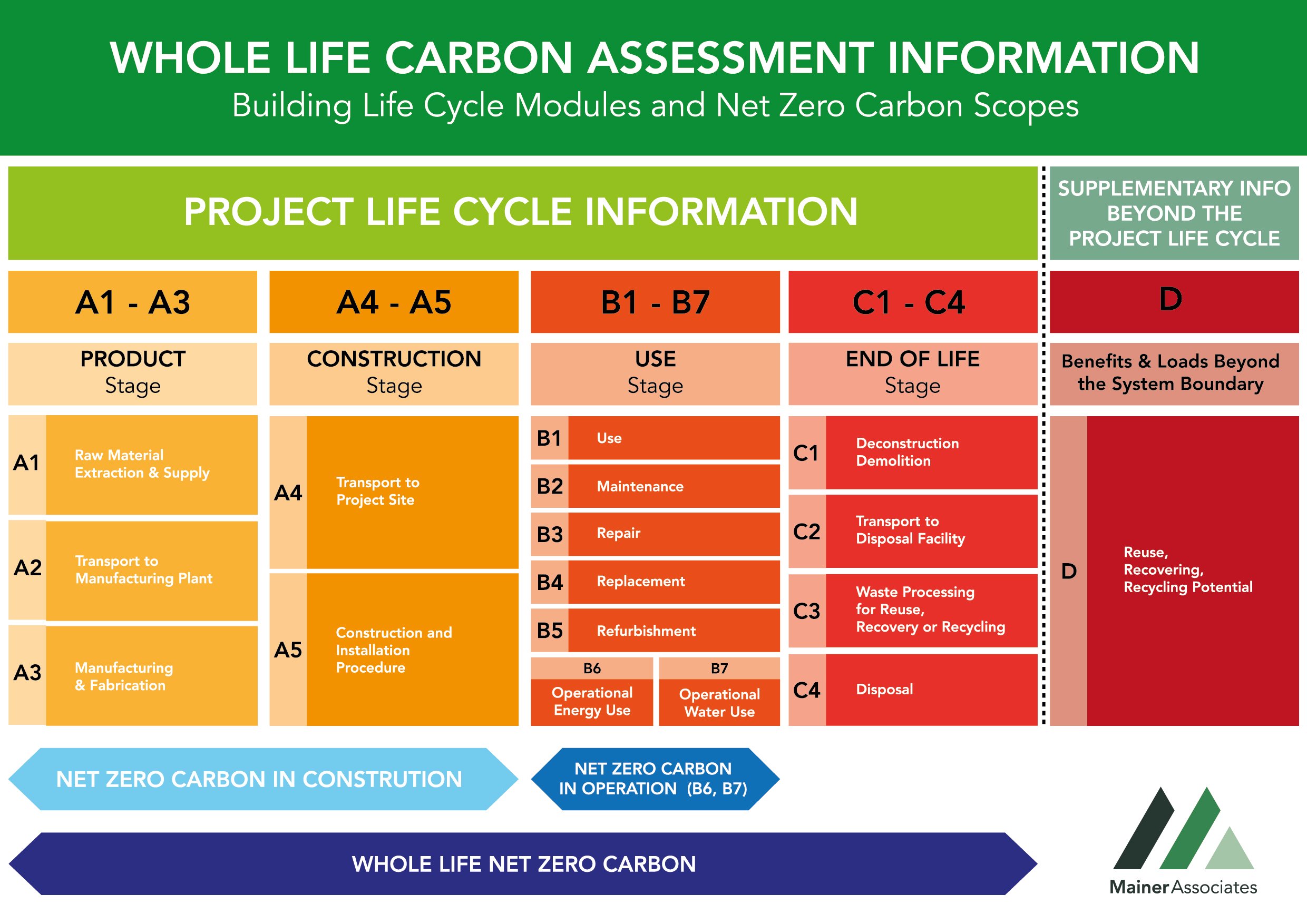Life Cycle Assessment
How can we help?
Mainer Associates offers carbon consultant services to deliver LCA and whole-life carbon quantification. We can complete LCA to RICS & BREEAM scope for clients pursuing net zero carbon status, BREEAM certification, along with any bespoke assessment a client sets us.
Additionally, we offer LCA to the GLA’s Whole Life-Cycle Assessment (WLC) guidance and completion of the WLC template to address the new planning conditions that form part of the new London Plan.
Mainer Associates approaches LCA in a sequential fashion throughout a project and its construction. We work closely with design teams from brief and through concept design to advise on opportunities to design-out embodied carbon. We aim to reach an as-designed embodied carbon position prior to tender.
Following contract award, we would ideally advise on procurement decisions to ‘procure-out’ further embodied carbon. Throughout all stages we look for opportunities to reduce embodied carbon of materials that are: cost and programme neutral, technically viable, of equal quality, meet client expectations and do not inhibit the building in delivering other performance requirements.
Total WLC figures are a moving target throughout a project, with completeness and accuracy of material inventories constantly being improved. Mainer Associates provides regular updates to inform our clients on assessment progress and changes to embodied carbon total. The in-depth role we look to undertake allows us to give an accurate as-built embodied carbon position prior to practical completion for clients to go and pursue offsets if they wish to do so.
What is a Life-Cycle Assessment (LCA)?
A Life-Cycle Assessment is a methodology for assessing environmental impacts associated with all the stages of the life-cycle of a commercial product, process, or service.
Many of our clients want to assess the actual environmental impacts of a product or service. A LCA allows us to quantify impact via the inputs and outputs that an LCA provides and aids us in making better environmental decisions.
Process and Methodology
WLC Assessments are required at three stages: pre-application; stage 1 submission (RIBA stage 2/3) and post-construction (RIBA stage 6). They must be carried out using a nationally recognised assessment methodology. Actions to reduce emissions must be demonstrated. The assessment must cover operational, embodied and post ‘end of life’ benefits. All this must be done under the appropriate framework BS EN 15978 and be underpinned by the RICS Professional Statement: Whole Life Carbon assessment.
Both BS EN 15978 and the RICS PS set out for four stages in the life of a project, which are known as life-cycle modules, and which must be presented discretely, based on a period of 60 years:
Product sourcing and construction: to reduce carbon emissions both at this stage and the subsequent ones. Processes in fabricating products and methods of construction are important.
Use: to understand how the building will perform, to minimise future emissions from maintenance, repair and replacement, and to minimise operational energy use via due consideration of the building’s overall resource efficiency
End of life: to capture the emissions from deconstruction and demolition, transport, waste processing for reuse, recovery or recycling and disposal, until the site is cleared, level and ready for further use
Benefits and loads beyond the system boundary: to develop scenarios regarding what will happen to a building after it has been demolished or dismantled in order to facilitate future reuse, recycling or recovery. This and the previous module together form the circular economy module
TM65 Reporting
CIBSE TM 65 provides a means to assess the embodied carbon of products linked to mechanical, electrical and public health (MEP) systems and seeks to increase knowledge and facilitate research in whole life carbon in MEP systems.
See also:



